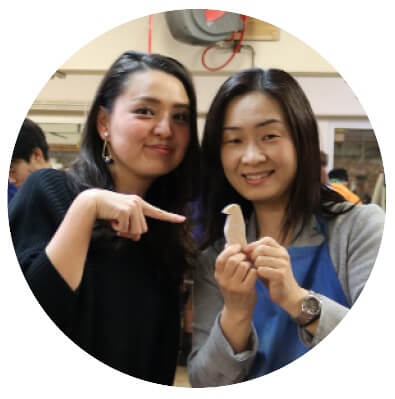Learning English has been a great challenge to me because it is a very different language to my first language, Japanese. Articles, ‘a’, ‘an’ and ‘the’, was, and still is, my biggest nightmare which is closely followed by the singular or plural matter. Japanese doesn’t have articles and doesn’t put a big deal on singular or plural. Trying to understand and constantly remind myself about this concept I didn’t grow up with isn’t easy.
My Japanese students here at Hillbrook would feel the same when they start learning the Japanese counter suffix. Japanese uses an enormous number of counter suffix and it is decided depending on the shape, size, material and status of the object.
For example, when counting animals, we say ‘(number) Hiki’. This ‘Hiki’ sound can change to ‘Biki’ or ‘Piki’ depending on the number that comes before. If the animal is big, like horses and elephants, the suffix has to change to ‘Tou’.
Squid and octopus are even more special.When they are in the ocean, they are counted with ‘Hiki’. After they are caught, the suffix changes to ‘Hai’. Once they are dried out and become flat, the suffix changes to ‘Mai’. If they are used for sushi it changes to ‘Kan’. Simple right? I can often feel the frustration of the students and I admit I feel the same when I teach. The English articles and the singular or plural matter is a bit like this to Japanese native speakers. It isn’t supposed to be difficult,
but quite often it is.
Another challenge is pronunciation. Japanese doesn’t have as many sounds as English, therefore, we take the closest sound we have when we hear the sound that doesn’t exist in Japanese. For example, Japanese doesn’t have actual ‘L’ and ‘R’ sounds. We use the sound between these two sounds for both, so many Japanese people can’t distinguish if they are saying ‘L’ or ‘R’. When I was working as a waitress I still remember the customers were sometimes giving me a weird look when they heard me repeat their order and say ‘lice’, instead of ‘rice’.
I have to say the biggest battle I have had to face during my English journey is ‘keeping my confidence’, especially during the first couple of years. Every time I couldn’t say what I wanted say, when I couldn’t understand someone’s English, or when someone made fun of my wrong pronunciation, each one of these things made all the confidence I had built up quickly fade away.
I often thought I would never be able to speak English properly and use it as a communication tool. I had a dream to teach in Australia and this kept me going, along with the support of people around me. I’m glad I didn’t give up and I am still so grateful to all the support I have received through my on-going English journey.
by MIDORI USHIRO
Japanese Teacher

